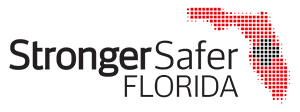
In an opinion piece published by the Palm Beach Post, Florida Consumer Action Network deputy director Bill Newton calls upon the Florida Legislature to consider stronger building codes, especially in Florida’s Panhandle where the building code is far weaker (built to withstand 120 mph winds) than in South Florida where buildings are built for 175 mph winds.
Newton points to Habitat for Humanity homes built in the Panhandle prior to the devastating arrival of Hurricane Michael. Inexpensive additions to these homes, including strategically placed nails, some small metal connectors and window shutters enabled the homes to withstand Hurricane Michael’s 160 mph winds.
Homes all across the state should be built to better withstand wind and water intrusion impacts of future storms. A stronger building code in Florida would better protect consumers’ investments without costing them much more.
The full opinion piece can be found HERE and below.
Point of View: Florida lawmakers should encourage strengthening our homes
Bill Newton
How to protect our homes from the unknown? Stronger building codes.
After the devastation of Hurricane Michael, University of Florida professor David Prevatt surveyed the damage and wrote a report about the impact on Florida homes. His report stated that homes built before the statewide building code was implemented in 2002 had much more damage than newer homes. He concluded that stronger building codes work but even newer homes were damaged in Michael’s fierce winds.
Surprisingly, some homes survived almost undamaged. Habitat for Humanity had built several homes that exceeded building codes by simply adding strategically placed nails, some small metal connectors and window shutters that created a sealed package. That inexpensive change was enough that the homes withstood Michael’s 150-mph winds, well beyond the 120 mph required by Florida’s current codes.
Only 120 mph? That’s right. Florida has a weaker building code in the Panhandle than in South Florida where buildings are built for 175 mph winds. Maybe it made sense at one time, but now reality is 150 mph winds in the Panhandle and anywhere else on the coast.
There isn’t complete agreement on climate change, but it’s clear the weather is now more unpredictable than ever even with very complex computer models and advanced artificial intelligence. If you were safely anchored in a worldview that included science accurately predicting the weather, well, these hurricanes will shake your foundations. We’re just not sure how many powerful hurricanes will make landfall in Florida next year.
How to protect our homes from the unknown? Stronger building codes. We know they work, but getting there is complicated. We also know some older homes are stronger, but without an inspection, we don’t know how strong or what is needed. The Florida Legislature will consider new building codes next year and it should address the obvious problems noted in Prevatt’s report. Legislators should also prepare for 150 mph winds that extend well inland and make that the new minimum standard.
We should update codes for renovations and repairs. Focusing on roofs, the recommendations include using better nails, connecting the roof to the walls, and the walls to the foundation. Then sealing the underlayment with new materials to make it more waterproof even if the shingles or tiles are torn off. During a normal replacement cycle, this would cost as little as $800.
Some homes will still be lost, each one is a disaster in itself, but we will not lose so many. Strengthening homes costs money, but not as much as replacing the home and everything in it. Lower insured losses could be a source of funding.
An updated building code will reassure home buyers that their investment and their family is safe. Otherwise we risk what is happening in Mexico Beach area: residents and businesses aren’t coming back because they lost everything and they’re terrified it will happen again. Who can blame them? The Legislature must not allow unsafe homes just to save pennies. They can find other ways to keep housing affordable instead of cutting corners. We know that’s a mistake.
BILL NEWTON, ST. PETERSBURG
Editor’s note: Newton is the deputy director of the Florida Consumer Action Network (FCAN) a nonprofit, nonpartisan group that educates and advocates on consumer issues including insurance, health care, utilities and the environment.
Stronger Safer Florida is a nonpartisan coalition comprised of businesses, consumer and environmental groups from throughout Florida. This diverse membership seeks to protect consumers before, during, and after catastrophic events impact Florida.
